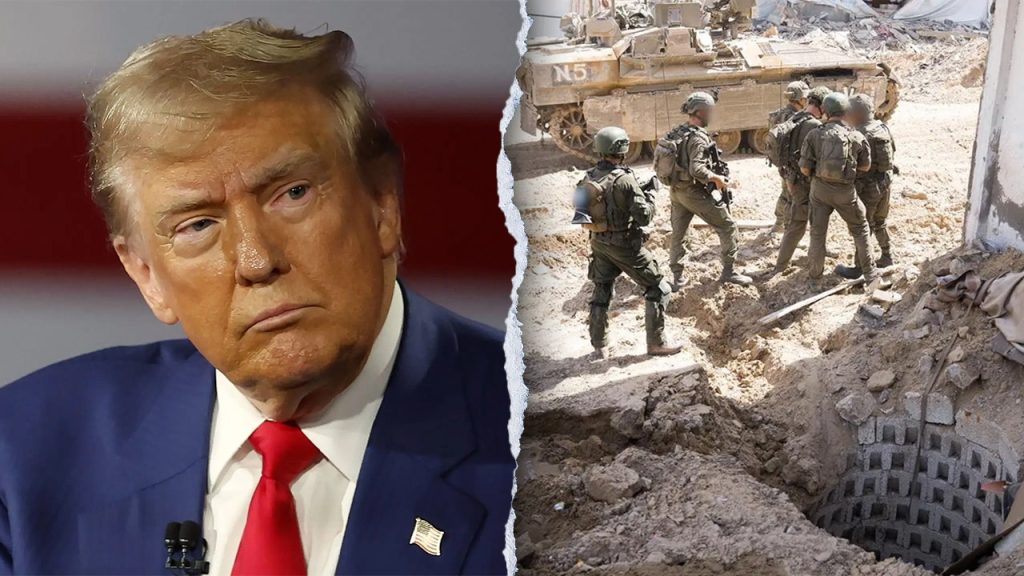As Israel wraps up its military operations in Gaza, the focus shifts to what the future holds for the region. With nearly 1.9 million people displaced and awaiting relief, the international community is closely monitoring Israel’s plans for the post-conflict phase. There is a sense of anticipation surrounding the policies of the incoming Trump administration, with many believing that Trump’s approach will significantly impact the future of Gaza. Israeli officials are hopeful that the new administration will increase pressure on Hamas and enable new possibilities for the region.
Israel’s Defense Minister, Israel Katz, has outlined a vision for Gaza’s future that includes maintaining full security control similar to the West Bank after defeating Hamas’s military and political power. Discussions have hinted at the creation of a “technocratic” body to provide governance for Gaza, composed of independent Palestinian figures and potentially signaling a shift in power dynamics away from Hamas. While Israel looks to involve Arab countries like the UAE, Saudi Arabia, and Egypt in the reconstruction efforts, there are warnings from senior IDF officials that without a clear strategic plan for the post-conflict period, the gains achieved in the military campaign could be undone.
Various proposals have been put forward for Gaza’s future, each with different approaches and potential outcomes. Retired Major General Giora Eiland advocates for a militaristic strategy involving besieging northern Gaza and forcing Hamas into submission, ultimately leading to international collaboration in the rebuilding process. Major General (res.) Amos Yadlin, on the other hand, supports a diplomatic approach involving Palestinian technocrats mentored by Arab states to stabilize Gaza after dismantling Hamas’s military infrastructure. The exclusion of the Palestinian Authority in Gaza’s future governance raises questions about political stability and the effectiveness of a technocratic model in the absence of PA involvement.
The involvement of the UAE in Gaza’s future has garnered attention, with the country being seen as a key player in the region’s reconstruction efforts. While Israel welcomes the UAE’s contributions to humanitarian aid and civil aspects of the reconstruction, there are concerns about security and preventing Hamas from regaining control. Israeli officials stress the importance of avoiding a return to the pre-conflict status quo and the need for a comprehensive post-conflict plan to prevent the cycle of violence from continuing. The uncertainty surrounding U.S. policy under the new administration further complicates the situation, with officials waiting to see how Trump’s approach will impact the region.
While differing views on the future of Gaza persist among Israeli officials, there is a common understanding that the post-conflict phase will be crucial in shaping the region’s stability. With potential plans ranging from militaristic strategies to diplomatic solutions, the debate over Gaza’s future governance continues. As the situation evolves, the role of Arab states, particularly the UAE, in contributing to Gaza’s reconstruction remains a focal point. Israel’s determination to prevent Hamas from regaining control underscores the need for a comprehensive and sustainable post-conflict plan that addresses both security concerns and humanitarian needs in the region. The coming months will be critical in determining the path forward for Gaza and the role that international actors, including the United States, will play in shaping its future.


